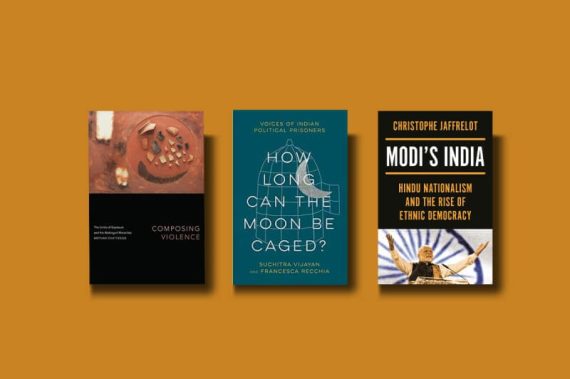Narendra Modi is roaring to the world that India is a worthy contender on the global scene. India has come to the fore with its massive economy, recent successes at the space front, potential megaproject linking India, the Middle East and Europe via rail and sea, and playing the role of a distanced ally towards to the competing world powers: the U.S. and China.
All eyes were on the G20 summit taking place in New Delhi this year, and Modi surely wanted to make a good impression. Schools and offices were shut, roads were blocked, and street vendors were removed. Even whole slums near the venue were covered in tarpaulin! Ironically, Modi’s speeches repeatedly described India as the world’s largest democracy and the ‘voice of the Global South’.
However, behind this sterilized facade lies discrimination, oppression, and erasure— on brand with the Hindu nationalism fueled by Modi’s Bharatiya Janata Party (BJP). Numerous attacks on minority communities sweep through the country, including demolitions of Muslim houses, mosque and church attacks, grave desecrations and violent killings. Meanwhile, the government takes every step to define India as a Hindu nation.
In this month’s book bundle, we examine how Modi’s India both oppresses and suppresses its minority citizens. Through books that explain the political dynamics in India, the impact of state-sanctioned violence, and the silencing of critical voices, we observe how the world’s largest democracy goes wrong.
In the book Modi’s India: Hindu Nationalism and the Rise of Ethnic Democracy, Christophe Jaffrelot delves into the intricate dynamics of Indian politics over the last two decades, with a particular focus on the rise of Hindu nationalism coupled with national-populism, largely attributed to Narendra Modi’s leadership. This confluence of factors has not only secured Modi’s electoral success, starting in Gujarat and extending to the entire country but has also transformed the very nature of democracy in India.
Jaffrelot’s work spotlights Modi’s ability to captivate a significant portion of the Indian populace by offering promises of development while simultaneously exploiting ethno-religious fault lines within the electorate. This national-populism is marked by Modi’s personalized political style, characterized by direct communication with voters through various channels, effectively saturating the public discourse.
To shed light on the consequences of this political shift, Jaffrelot conducts original interviews across India, revealing a troubling evolution toward what he terms an “ethnic democracy.” In this model, the majority community is equated with the nation, while religious minorities, specifically Muslims and Christians, find themselves relegated to the status of second-class citizens, vulnerable to harassment by ‘vigilante’ groups.
Furthermore, Jaffrelot elucidates how the political landscape in India has developed authoritarian tendencies for various reasons. In its quest for power not only at the national level but also in the states, the government has centralized authority at the expense of federalism, eroding the very institutions that once served as checks and balances, including India’s Supreme Court.
In sum, Modi’s India showcases a government, supported by popular mandate, stifles dissent and grows increasingly intolerant of ethnic and religious minorities. The book provides essential insights into politics, nationalism, and populism in contemporary India.
Christophe Jaffrelot, Modi’s India: Hindu Nationalism and the Rise of Ethnic Democracy (Princeton University Press, 2021) ISBN: 9780691206806, 656 pages
In Composing Violence: The Limits of Exposure and the Making of Minorities, Moyukh Chatterjee examines the haunting memory of the 2002 anti-Muslim violence in Gujarat, India, where armed Hindu mobs unleashed brutal attacks on Muslims in broad daylight, resulting in a staggering death toll that shocked the nation. Chatterjee’s investigation goes beyond the horrific events themselves, aiming to dissect how such highly visible political violence against minority communities serves as a catalyst for profound transformations in the domains of law, public culture, and power dynamics.
Contrary to the expectation that exposing state-sanctioned anti-Muslim violence would lead to its suppression, Chatterjee argues that these incidents actually set the stage for a fundamental shift in India, pushing it toward a Hindu supremacist state. He contends that examining the responses of both the state and civil society to this violence offers crucial insights into the inherent features of modern democracy, where riots and pogroms become tools for molding a society defined by a vulnerable minority and a dominant majority.
Chatterjee’s exploration focuses on multiple facets, including courtroom procedures, police archives, legal activism, and mainstream media coverage. Through this multifaceted approach, he constructs a theory of violence as a form of governance, effectively engineering minority populations.
Composing Violence invites readers to grapple with the profound and unsettling implications of anti-Muslim violence in India. Chatterjee’s meticulous analysis paints a picture of how violence can shape the course of democracy, raising profound questions about the fragility of minority rights and the complex interplay between power and prejudice in contemporary societies.
Moyukh Chatterjee, Composing Violence: The Limits of Exposure and the Making of Minorities (Duke University Press, 2023) ISBN: 978-1-4780-1966-4, 184 pages
What happens to those who dare question the injustices of the Modi regime? The book How Long Can the Moon Be Caged? provides a piercing examination of the authoritarian regime under Narendra Modi in India, where the suppression of critical voices and the silencing of dissent have become central objectives for the ruling BJP party. Their ethno-nationalist aspiration of establishing an exclusively ‘Hindu’ India, involves targeting anyone who dares to voice questions or opposition.
Authors Suchitra Vijayan and Francesca Recchia present a unique perspective highlight the experiences of political prisoners. Their approach combines astute political and legal analysis with firsthand accounts, offering readers an in-depth exploration of the subtle acts of resistance that occur both within and beyond prison walls, involving not only the prisoners themselves but also their families. The narrative unravels a tale of institutional decay and the erosion of fundamental rights.
The book spotlights the stories of those who have been falsely accused of inciting the Bhima Koregaon violence, student leaders who have protested against the discriminatory citizenship law of 2020, and activists associated with the Pinjra Tod movement. By weaving together these voices, How Long Can the Moon Be Caged? celebrates the remarkable bravery, unwavering humanity, and moral integrity of individuals who have been incarcerated for their unwavering solidarity with marginalized and oppressed communities.
In a world where the struggle for dissent and the preservation of civil liberties are ever more vital, this book serves as a powerful testament to the resilience of those who refuse to be silenced, while painting a vivid picture of the ongoing battle for justice and equality in India.
Suchitra Vijayan and Francesca Recchia, How Long Can the Moon Be Caged?: Voices of Indian Political Prisoners (Pluto books, 2023) ISBN 9780745347981, 216 pages
Recommended







